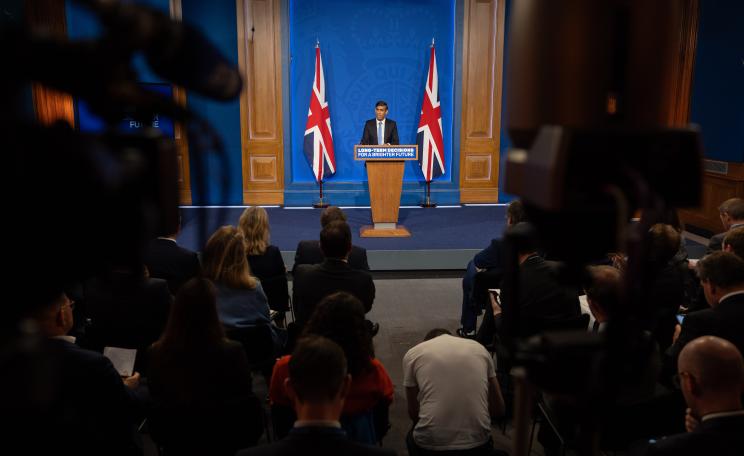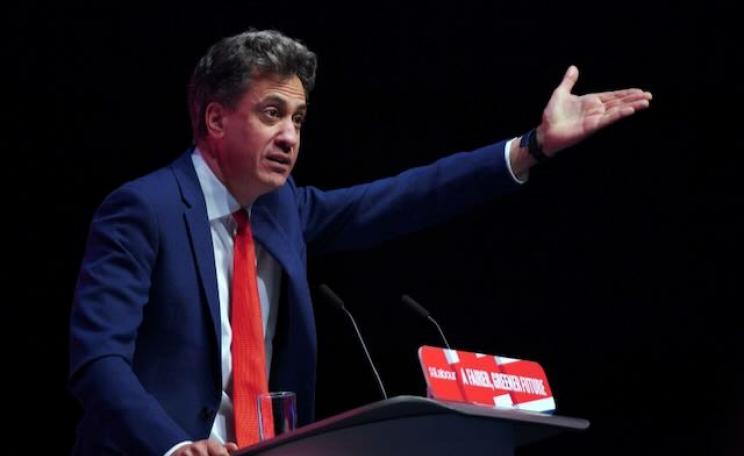I’m hoping it will give confidence to people that they can achieve things, confidence that they’ve got a better, brighter future and a stronger connection with the climate emergency.
Dozens of people were left shivering in the cold outside Portcullis House in London last month, having been turned away by security. This was a good thing, and I’ll explain why.
The throng of people that were gathered there, some having travelled from as far as Scotland, Wales and the Southwest of England, were planning to attend Empowering Community Energy, an all-party parliamentary meeting organised by campaign group Power for People. The event aimed at encouraging MPs to pledge their support for the sector ahead of the general election.
Community energy is still a little-known piece in the giant energy puzzle we’re facing today in the race to net zero emissions. It puts people at the heart of the transition to clean power: owning local renewable energy generation assets (solar panels or a wind turbine for example), using the energy produced, or both, often alongside efforts to reduce energy use.
Community
Many community energy organisations are community benefit societies which means local member shareholders each get one vote regardless of the amount they invest, and that profits are channelled back into the community.
By taking control of renewable energy developments, and benefitting from the lower cost clean energy, community energy gives people a sense of ownership and agency in the urgent transition away from fossil fuels.
England’s largest onshore wind turbine, located on the outskirts of Bristol, which began operating last year, is a great example of the power of community energy. Mark Pepper, co-founder of Ambition Lawrence Weston, the community group behind the turbine, has said: “I’m hoping it will give confidence to people that they can achieve things, confidence that they’ve got a better, brighter future and a stronger connection with the climate emergency.”
But despite these benefits, too few people know about the sector. According to an Ipsos Mori poll we commissioned last year, only one per cent of British adults feel they know a great deal about the concept of community energy.
Local people in charge of their energy supply - at a time of climate impeding climate catastrophe it shouldn’t be that hard, right? While the sector continues to celebrate new projects, it remains stymied at several levels. Much of this centres on restrictions to connecting to the National Grid, which can be prohibitively expensive for smaller groups.
Doomscrolling
Small-scale, local organisations often also struggle to raise finance for investments, in particular at the early stage of developing a new project, meaning many simply don’t get off the ground. Power for People’s campaign for a Local Electricity Bill has also put local supply under the spotlight.
The proposed legislation seeks to provide a framework that would make it much easier for small energy generators to sell directly to local people and receive a stable tariff for selling their energy.
I’m hoping it will give confidence to people that they can achieve things, confidence that they’ve got a better, brighter future and a stronger connection with the climate emergency.
I arrived at Portcullis House early and was lucky enough to get a seat. Immediately it became clear that there was an important face missing - Lord Callanan, minister for energy efficiency and green finance. The chair extended Callanan’s apologies, and said a promised public consultation into barriers preventing local energy supply would be launched “soon” - eliciting much discontented murmuring from the audience. Despite this dampener, the meeting went on to be both illuminating and energising.
Energy generation and use is at the heart of political debate in this crucial general election year. On the doomscrolling side, we have seen the UK Government fail to properly tax windfall profits by big oil companies, by grant licences for even more oil and gas extraction in the North Sea against the advice even of oil and gas executives themselves, and fail to remove blocks to onshore wind projects.
On the positive side, it introduced the Community Energy Fund, which at only £10 million is far too small, but does provide some funding to kickstart new community-focussed green energy projects. Importantly, it also provides institutional infrastructure that a green-minded new government could use to get the ball rolling on community energy.
Transition
Labour sparked much dismay by ditching their headline £28 billion investment commitment to propel the country’s transition to a low-carbon economy. They are, however, still sticking to their Local Power Plan, centred around a new publicly owned energy generator, Great British Energy, which will in turn provide £4 billion of investment in local and community owned energy.
I asked Alan Whitehead, Labour's shadow minister for energy security, what the timing for rolling out this investment would be. His answers were encouraging. He said Labour plans to put an energy independence bill through Parliament in their first year, which would lay the foundation for the Local Power Plan.
Setting up GB Energy would take a while, between 18 months and two years, so they would need to find ways to support community energy before that. One very easy way would be to top up the existing Community Energy Fund with enough to really “turbo-charge” expansion of the sector. This would be an excellent way for a new Labour government to put their money where their mouth is.
Local ownership of renewable energy is not just a “nice to have” - it’s a need. As the news of floods, wildfires and rising seas continues to scream: we are in the middle of a climate emergency and there’s no time to lose. You can see it in the farmers’ protests across Europe, without bringing affected communities on board, change can’t happen.
It’s difficult to see how we can achieve the speed of the transition we need to avert the worst of what’s waiting for us. There is so much appetite for community energy and a desire to see political will turn in its favour. The long queue outside Portcullis House was testament to that.
This Author
Helen Martin is the CEO of Bristol Energy Cooperative.




